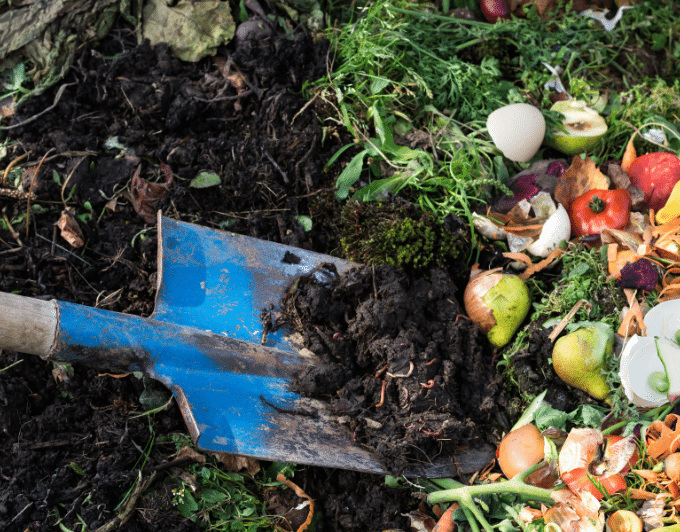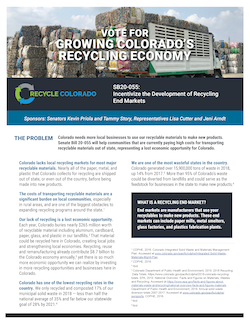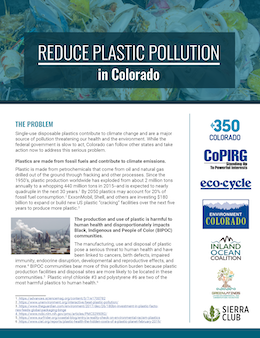Taking Colorado from Zero Waste Laggard to Zero Waste Leader
Despite the fact that our beautiful environment is our claim to fame, Colorado is one of the most wasteful states in the nation, recycling and composting less than 16% of its waste compared to an average 32% nationwide (based on 2020 numbers). We can and must do better!
By prioritizing Zero Waste practices such as recycling, we can create nine times more jobs per ton than landfilling; create much-needed, locally-produced feedstocks for businesses to make new products; turn organic waste such as food scraps and yard debris into compost to build stronger, more resilient soils; and reduce our greenhouse gas emissions.
Eco-Cycle is promoting systemic policy changes at the state level, while also working with communities, businesses, schools, and residents across Colorado to move closer to Zero Waste.

































